Iran Arrests Stonemason Who Made A Tombstone For Hanged Protester
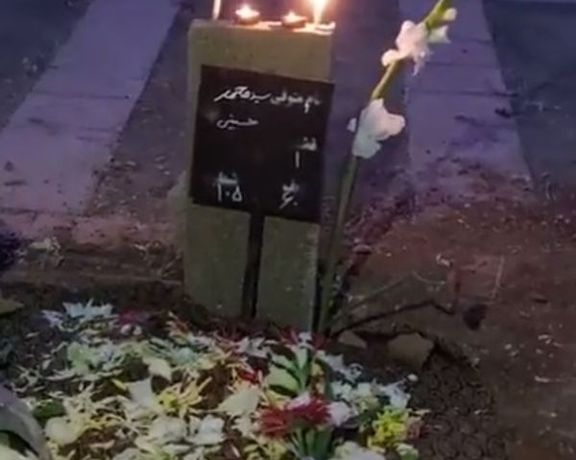
A stonemason who was hired to make a gravestone for executed protester Mohammad Hosseini has been arrested by Iran’s security agents.

A stonemason who was hired to make a gravestone for executed protester Mohammad Hosseini has been arrested by Iran’s security agents.
The arrest was reported by Kamelia Sajjadian, a mother whose son, Mohammad Hassan Torkaman, was shot dead by the security forces during protests in the northern city of Babol in September.
She said in a tweet on Thursday that her friends informed her the stonemason and his coworkers were arrested for the crime of measuring the grave to make a tombstone, adding that “I have never seen such brutality anywhere in the world.”
“A government that considers itself a regional power is afraid of the stone on a dead person's grave,” she noted.
The 39-year-old Hosseini – with no apparent family members -- was one of the loneliest victims of the regime’s crackdown, and his hanging drew massive reactions on social media where Iranians can speak freely. Grieving over his execution, people regularly gather at his grave and shower it with flowers and distribute food and sweets in the honor of their new hero, as is customary by bereaved families in Iran.
The regime hanged Hosseini along with Mohammad Mahdi Karami for allegedly killing a member of the security forces during protests that were triggered following the death of 22-year-old Kurdish woman Mahsa Amini in police custody in September. The convictions were not based on a criminal charge related to the murder per se, but they were charged with ‘moharebeh’, meaning “war against God”, a vague religious concept.
In the past few weeks, the Islamic Republic prevented the installation of a stone on the grave of Mohsen Shekhari, the first protester that the regime executed. Later, they broke the tombstone that was installed stealthily.
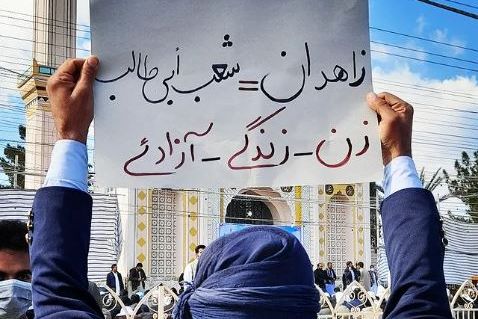
Mowlavi Abdolhamid delivered yet another fiery sermon in southeastern Zahedan Friday while another Sunni imam, Mowlavi Gorgij, was put under house arrest in northern Iran.
“A government that does not listen to the voice of the people does not deserve to rule,” said Mowlavi Abdolhamid in his Friday sermon in Zahedan, capital of the restive Sistan-Baluchestan Province.
Thousands of Abdolhamid’s congregation took to the streets in Zahedan for the 16th consecutive week after his sermon and chanted “Down with the Dictator” and “Khamenei is a murderer, his rule is illegitimate”.
The Sunni Baluch population have taken to the streets in Zahedan every Friday after prayers since September 30 when government forces cracked down on protesters and killed more than 80 protesters.
Similar protests were held Friday in Rask, another city in Sistan-Baluchestan, in support of Abdolhamid and Mowlavi Abdul Ghaffar Naghshbandi, another Sunni Baluch cleric. In the past four months Naghshbandi has been under pressure from the authorities for confirming that allegations of a police chief raping a fifteen-year-old Baluch girlwere not true.
A Revolutionary Guard commander, Brigadier General Mohammad Karami, was appointed as provincial governor three weeks ago. Security measures and restrictions in the province and particularly its capital Zahedan have escalated to an unprecedented level.
In his sermon this week, Abdolhamid also protested to the doubling of checkpoints in Zahedan. “Seven stop and search checkpoints have turned into fifteen,” he said.
The new measures include at least fifteenconcrete block stop and search checkpoints on roads leading to Zahedan to control the flow of cars into the city, with security forces demanding identification and often questioning passengers. Internet connection has also been heavily restricted in the province since protests began four months ago.
Abdolhamid also argued that the government’s unjustified security-driven attitude to Sistan and Baluchestan impedes development as it discourages investment and progress. “People will establish security themselves [if allowed],” he said.
By “security-driven attitude” Abdolhamid apparently meant the government’s and the Shia establishment’s general lack of trust in Sunni communities across the country. Some officials and Shiite clerics who see Iran's Sunni minority as a threat to the Shia establishment occasionally raise alarm over the growth of the Sunni population in Iran.
Over 1,300 kilometers north of Zahedan, in the northern Golestan Province where there are large Sunni Baluch communities living for decades, another Mowlavi (Imam), Mohammad-Hossein Gorgij, has reportedly been put under house arrest in Galikesh.
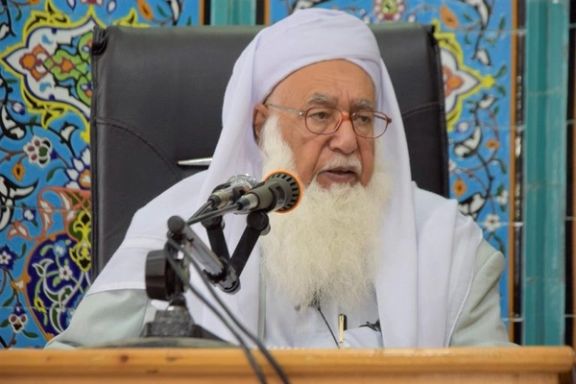
Gorgij who served as the Sunni imam of Azad Shahr, 35 kilometers from Galikosh, was dismissed as Friday Imam of the Sunni community of Azad Shahr in Golestan in December 2021 by Supreme Leader Ali Khamenei’s representative in the province for protesting to Shiites slandering Sunni caliphs.
Khamenei’s provincial representatives have the power to appoint and sack not only Shiite but also Sunni imams.
“Authorities have told me that my participation in Friday prayers is not befitting. My presence at Friday prayers is people’s wish not my own,” Gorgij told his supporters who had rallied outside his home in Galikosh Friday. “A government that is not on people’s side is not worthy of ruling,” he said.
Sistan and Baluchestan is Iran's largest but least developed province where around two-thirds of the population live in extreme poverty. The northern part of the province, Sistan, is predominantly Shiite while the southern part, Baluchestan, is Sunni majority.
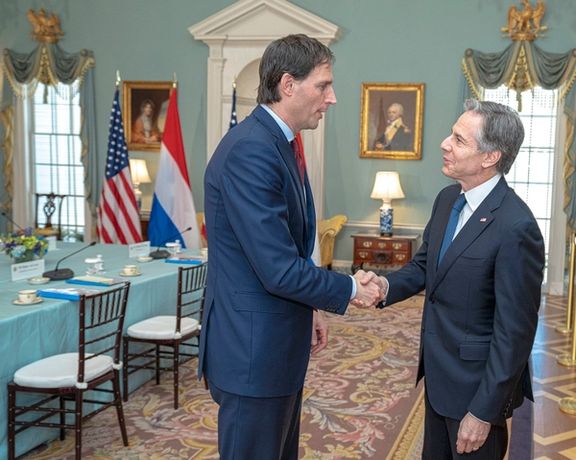
As the European Council is set to decide about European Parliament’s call to list Iran’s Revolutionary Guard as a terror group, the Netherlands has already expressed its support.
Dutch Foreign Minister Wopke Hoekstra said in a tweet on Thursday that “The Netherlands is strongly in favour of listing the IRGC as an entity, a step that requires the joint commitment of EU member states.”
He added that he held talks with High Representative of the EU for Foreign Affairs and Security Policy Josep Borrell about Russia and Iran.
“We also addressed the grave human rights violations in Iran,” he said, noting that “We need to continue to sanction those responsible.”
Hoekstra also said he will also hold talks with German Foreign Minister Annalena Baerbock to address this issue at the upcoming EU Foreign Affairs Council.
The Dutch foreign minister also held talks with US Special Envoy for Iran Robert Malley. “Productive meeting with Foreign Minister Hoekstra. We discussed our common steps to confront Iran's human rights abuses and counter its provision of weapons to Russia for use in its brutal war of aggression against Ukraine,” Malley said.
Although the European Parliament overwhelmingly passed the non-binding resolution on January 19, it cannot decide to designate the IRGC, which is an issue within the purview of the EU Council, comprised of ministers of each EU country. If the resolution garners enough support, it is then upon the national governments of the EU member states to make the final decision. The listing of the IRGC must have a unanimous vote by all 27 EU members in the EU Council.
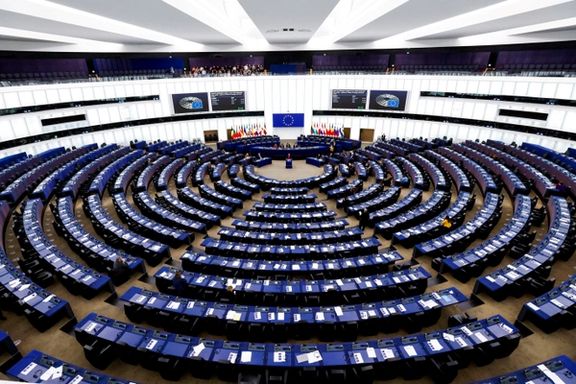
While many Iranians welcomed the European Parliament’s resolution that calls on EU to list the Revolutionary Guard as a terrorist group, regime officials have threatened to respond.
After the European Parliament overwhelmingly passed the resolution Thursday that may eventually lead to the designation of the IRGC, people on social media started to congratulate each other, describing it as yet another victory for their revolt against the clerical regime.
Since the beginning of the current wave of antigovernment protests ignited by a Iranian young woman – Mahsa Amini – the Iran’s government is becoming more isolated in the international community. So far, the Islamic Republic was voted out from the United Nations Commission on the Status of Women (CSW) for policies contrary to the rights of women and girls in December. Another step was by the Geneva-based UN Human Rights Council’s decision on November 24 to launch an independent investigation into the regime’s deadly repression of protests that has killed around 500 civilians, including about 60 children. Several rounds of sanctions by the European Union, the US, Canada and others also targeted officials and entities involved in the crackdown.
According to social media videos, people in some Kurdish cities, including Saqqez – the hometown of Amini -- and Mahabad, came to the streets and rejoiced with fireworks following the approval of the resolution.
Videos sent to Iran International from different cities such as Qom – home to Iran’s biggest seminary -- and the southern city of Bandar Abbas show people distributing candies to celebrate the decision. In one video, someone said that they are watching the European Parliament’s session live on Iran International TV, adding that it is more exciting than the World Cup matches.
Meanwhile, Islamic Republic’s officials, who had started threatening Europe even before the vote, have intensified their rhetoric against European countries over the decision.
Foreign Ministry spokesman Nasser Kanaani said the reason for the designation of IRGC as a terrorist organization is that Europe is infuriated over the IRGC’s leading role in the fight against terrorism. “The reason behind the anger of the ‘global club of terrorists’ is crystal clear. The IRGC is the world’s largest counter-terrorism institution,” he wrote in a tweet on Friday.”
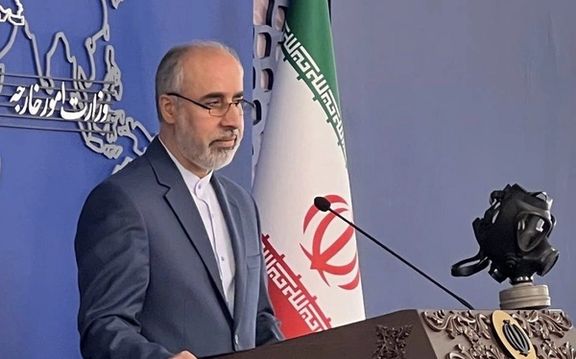
In a statement on Friday, the Army condemned the move, claiming that it exposed the enemies’ grudge against the Islamic establishment in Iran. “The measure of the European Parliament, which claims to be fighting terrorism, against an anti-terrorist institution is out of their desperation and failure in supporting recent riots in Iran,” read the statement.
Hardliner Iranian lawmaker Mohammad Esmail Kowsari, himself a former IRGC commander, said on Friday, "One should ask where the IRGC has committed terrorist acts. They conspired to overthrow the Islamic Republic and the IRGC foiled it." Vowing that the parliament will announce its retaliatory measures on Sunday, he asked, “What part of the IRGC is a terrorist group?”
Criticizing the motion, Speaker of Iran’s parliament, Mohammad Bagher Ghalibaf, said that “If the European Union makes such a decision and lists the Guards as a terrorist organization, it means that the European Union acts as a supporter of terrorism, because the IRGC is the biggest and most successful anti-terrorist entity.”
The whole argument of the Islamic Republic in defense of the IRGC – which has armed proxies in many countries across the region – is its limited role in the battle against the ISIS. But in fact, IRGC was building its own Shiite militant proxy network and to an extent fought against the Sunni extremist group.
The European Parliament cannot decide to designate the IRGC because the terrorists list is not a list decided by the Parliament itself but by the EU Council, comprised of ministers of each EU country. If the resolution garners enough support, it is then upon the national governments of the EU member states to make the final decision. The listing of the IRGC must have a unanimous vote by all 27 EU members in the EU Council.
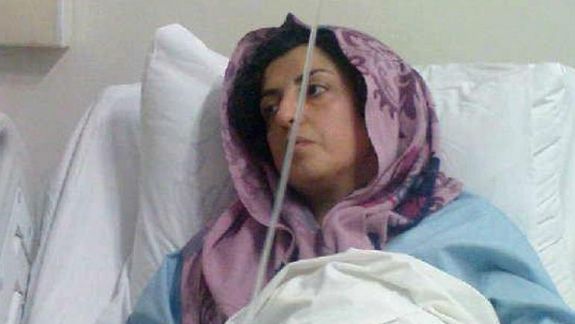
Imprisoned civil and human rights activist Narges Mohammadi has released a harrowing account of what is happening inside the women's ward of Tehran’s notorious Evin prison.
In a document published on Thursday, she recounted details about women who have been suffering from tough sentences, long periods of time spent in solitary confinements, harsh interrogations, and framing the detainees for crimes they did not commit.
Mentioning the names of 58 out of 61 prisoners, she also shed light on the conditions that these women are being kept in, including their difficulties to access medical care and treatment.
The prominent activist described solitary confinement in wards controlled by the intelligence ministry and the Revolutionary Guard as “gross violations of human rights and acts of white torture,” saying that 57 out of 58 female prisoners have experienced "terrible inhumane tortures". Most of these women, especially those who have been in solitary confinement for a long time, suffer from complications and diseases caused by confinement in solitary cells.
This imprisoned human rights activist called solitary confinement in security cells among gross violations of human rights and acts of white torture. These women spent from several months to about two years in solitary confinement, some of without any human contact.
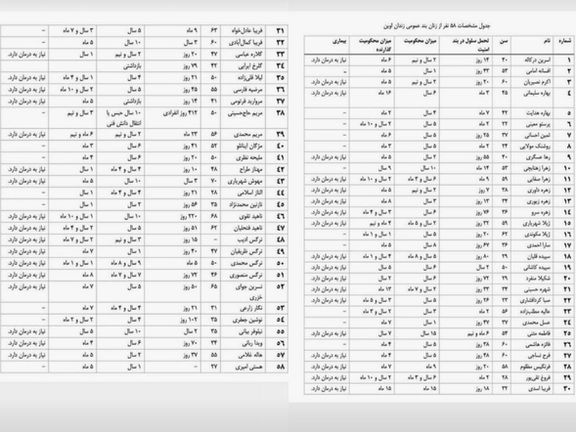
Maryam Haj-Hosseini spent 412 days in a solitary and was completely isolated and alone; Zahra Zahtabchi spent all her 14-months imprisonment in the cells of Ward 209 (that belongs to the Intelligence Ministry); and Maryam Mohammadi spent her 23 months of imprisonment in those cells in inhumane conditions, she said in her report.
She added that Niloufar Bayani spent nine months in solitary cells of Ward 209, while Sepideh Kashani, Zahra Safaei, Mahvash Shahriari, Fariba Kamalabadi each spent about eight months in those cells. According to her, dual nationals taken hostage, 68-year-old Nahid Taqavi and Fariba Adelkhah spent months in solitary confinement at Ward 209.
Mohammadi herself has been in solitary confinement for five months of her imprisonment.
She also provided a list of the sentences of these women and said most are facing very long-term incarceration, some of whom given up to 15 years behind bars.
In her list, Mohammadi also mentioned those who need medical care but are denied any treatment.
She also highlighted that dozens of political prisoners across Iran are not being kept in wards dedicated for prisoners of conscience and are kept among criminals.
Earlier in the month, the Swedish Olof Palme Foundation announced its 2023 award to three female activists, including Narges Mohammadi, for their efforts in the fight for women's freedom.
Mohammadi has been to jail several times over the past two decades. She was freed from Evin Prison in September 2020 after serving more than five years when she had no contact with her husband and children for long periods of time. She was arrested again and sentenced to eight years in jail and 70 lashes by the Revolutionary Court on trumped-up political charges again in a five-minute trial in late January 2022.
In another message from prison in June, Mohammadi called on right organizations to put pressure on the Islamic Republic for its crackdown on popular protests and said the international community should condemn the “killing of people on the streets” similar to pressure on Russia for its invasion of Ukraine.
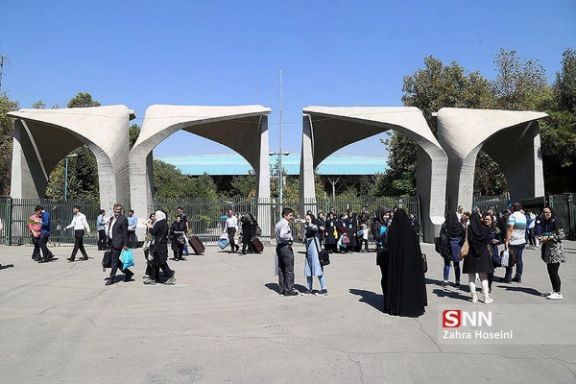
The dean of Tehran University has threatened that based on a new decision students who do not comply with compulsory hijab will "be subject to disciplinary action".
Mohammad Moghimi said Thursday that according to the new regulation approved by the university council, women without proper hijab will be identified upon entering through their student cards.
According to him, after identifying the students, messages will be sent to them, and they will be asked to observe the mandatory hijab.
“In the next step, the university will contact the student's family and if the student still does not observe the mandatory hijab, a disciplinary case will be filed against her,” added Moghimi.
The dean of Tehran University warned the students that “as of now, the mandatory hijab regulations will be strictly enforced.”
During the nationwide protests in Iran following the death in custody of Mahsa Amini, universities have been the scene of anti-regime protests, however the authorities of the Islamic Republic have imposed extensive restrictions on the protesting students.
For instance, a few days ago, Shargh daily reported that security organs have banned around 50 students from entering Urmia University in the northwest.
After months of protests, many women have removed their hijab in big cities and the government is hesitating on a full clampdown, afraid that it would inflame more unrest.
Earlier, sources reported increasing pressure through "exclusion from dormitories and suspending students."